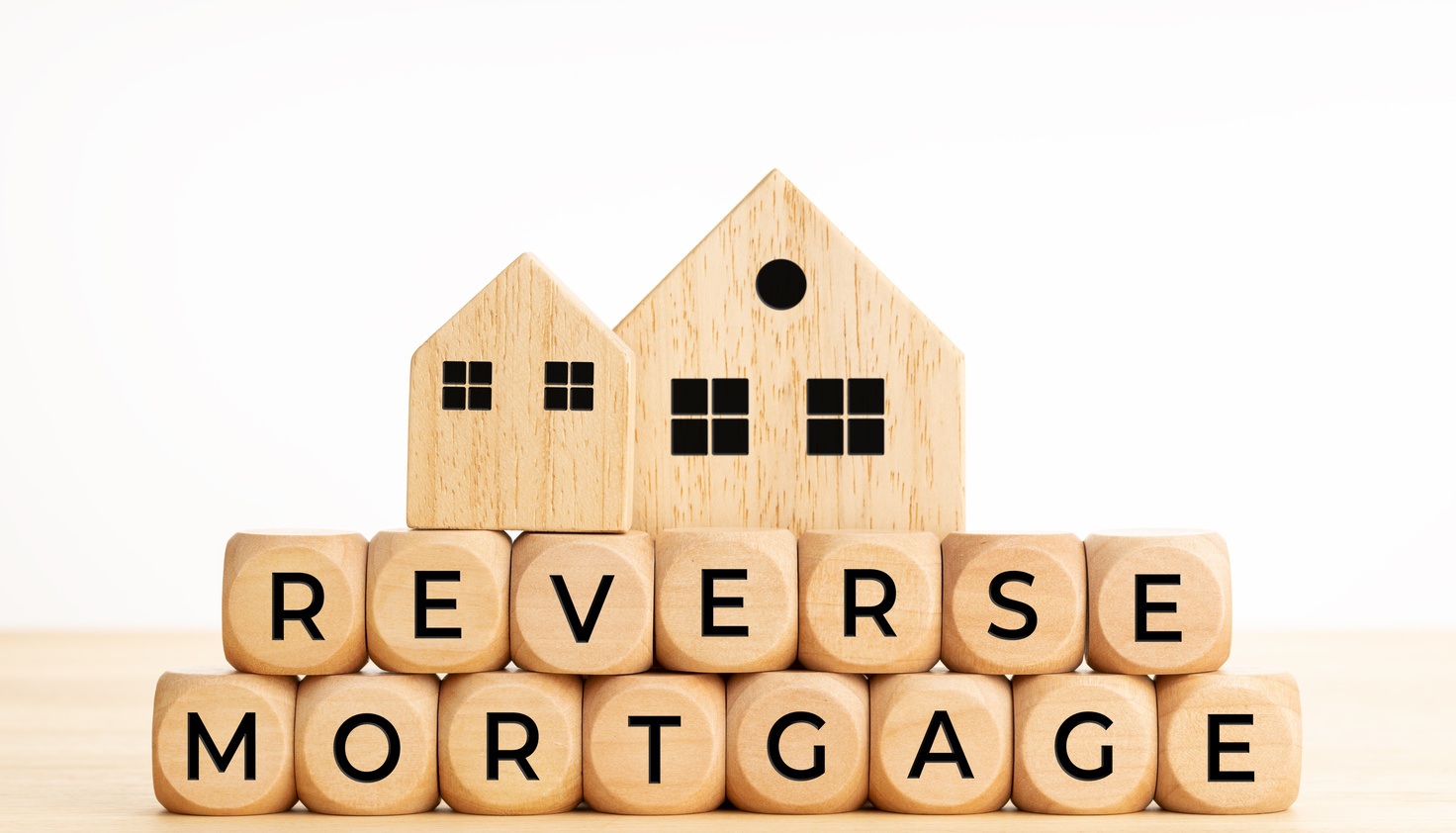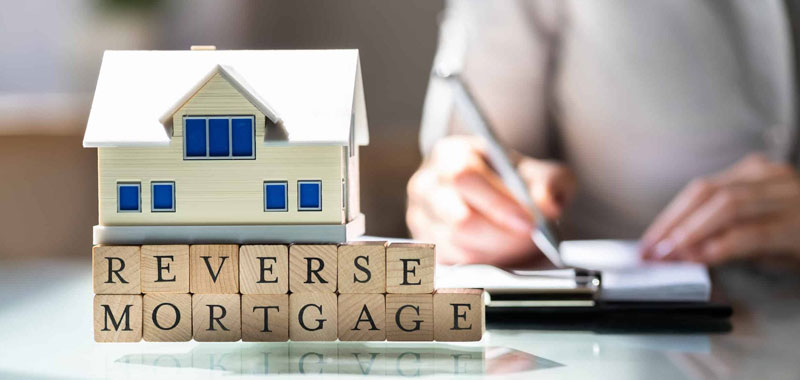Understand How to Purchase Reverse Mortgage for a Stress-Free Retirement
Understand How to Purchase Reverse Mortgage for a Stress-Free Retirement
Blog Article
Unlock Financial Flexibility: Your Guide to Buying a Reverse Home Mortgage
Comprehending the details of reverse home mortgages is important for property owners aged 62 and older seeking economic freedom. This distinct financial instrument allows seniors to leverage their home equity, changing it into obtainable money for different demands, from health care to way of living enhancements. Nonetheless, navigating the eligibility advantages, costs, and criteria can be complex. As you consider this choice, it is important to comprehend not only just how it functions but additionally the ramifications it might have on your financial future. What are the essential variables you should consider prior to making such an impactful decision?
What Is a Reverse Mortgage?

The fundamental charm of a reverse mortgage depends on its potential to enhance economic flexibility throughout retirement. Home owners can make use of the funds for different objectives, including clinical costs, home enhancements, or daily living costs, thus providing a safety net throughout a critical point of life.
It is vital to recognize that while a reverse home mortgage enables for raised cash money flow, it likewise reduces the equity in the home gradually. As rate of interest builds up on the superior financing balance, it is important for possible customers to thoroughly consider their long-lasting economic plans. Consulting with a reverse home loan or an economic advisor expert can supply valuable insights right into whether this choice aligns with an individual's monetary objectives and circumstances.
Eligibility Requirements
Understanding the eligibility needs for a reverse home mortgage is crucial for house owners considering this monetary choice. To qualify, candidates need to go to the very least 62 years old, as this age requirement permits seniors to accessibility home equity without monthly home loan payments. Furthermore, the house owner needs to inhabit the residence as their primary residence, which can consist of single-family homes, particular condominiums, and manufactured homes satisfying details guidelines.
Equity in the home is another essential need; property owners usually require to have a considerable amount of equity, which can be established via an appraisal. The amount of equity readily available will straight affect the reverse home mortgage amount. Candidates must show the capability to preserve the home, including covering residential or commercial property taxes, home owners insurance policy, and maintenance prices, guaranteeing the residential or commercial property remains in excellent condition.
Furthermore, prospective borrowers have to undertake an economic evaluation to examine their earnings, credit report, and general financial situation. This assessment assists loan providers identify the applicant's capacity to fulfill ongoing commitments related to the home. Fulfilling these demands is critical for protecting a reverse home mortgage and making certain a smooth monetary transition.
Benefits of Reverse Mortgages
Numerous benefits make reverse home More Help mortgages an attractive option for seniors looking to improve their economic versatility. purchase reverse mortgage. Among the main benefits is the capability to convert home equity right into cash money without the requirement for month-to-month mortgage settlements. This feature enables senior citizens to access funds for numerous demands, such as medical expenses, home renovations, or daily living prices, therefore relieving financial tension
Furthermore, reverse home loans supply a safeguard; elders can continue to stay in their homes for as lengthy as they meet the financing requirements, fostering security during retirement. The proceeds from a reverse home mortgage can likewise be utilized to postpone Social Security benefits, possibly top article resulting in higher payouts later on.
Furthermore, reverse home loans are non-recourse lendings, meaning that borrowers will never ever owe greater than the home's worth at the time of sale, safeguarding them and their heirs from economic responsibility. Lastly, the funds gotten from a reverse mortgage are typically tax-free, including an additional layer of economic relief. Overall, these benefits placement reverse mortgages as a practical solution for seniors seeking to improve their financial circumstance while keeping their cherished home setting.

Costs and Charges Entailed
When considering a reverse home loan, it's vital to recognize the different expenses and costs that can influence the overall financial picture. Understanding these expenditures is vital for making an educated decision regarding whether this economic product is appropriate for you.
One of the primary expenses connected with a reverse home mortgage is the source fee, which can vary by lending institution but usually varies from 0.5% to 2% of the home's appraised value. Furthermore, property owners need to anticipate closing costs, which may include title insurance policy, assessment charges, and credit history record charges, generally totaling up to several thousand dollars.
An additional significant expense is mortgage insurance premiums (MIP), which protect the lending institution against losses. This charge is generally 2% of the home's value at closing, with a recurring yearly premium of 0.5% of the remaining finance balance.
Finally, it is very important to think about ongoing expenses, such as real estate tax, homeowner's insurance policy, and upkeep, as the customer stays accountable for these expenditures. By meticulously reviewing these costs and fees, property owners can better examine the monetary implications of seeking a reverse mortgage.
Actions to Get Going
Starting with a reverse home mortgage entails several click for info vital actions that can aid improve the procedure and guarantee you make informed decisions. Assess your financial scenario and identify if a reverse home loan lines up with your lasting goals. This includes assessing your home equity, current financial debts, and the need for additional revenue.
Following, study numerous loan providers and their offerings. Seek credible institutions with favorable evaluations, transparent fee frameworks, and affordable rates of interest. It's vital to compare conditions to discover the most effective fit for your demands.
After selecting a lender, you'll need to complete a detailed application process, which usually requires documentation of revenue, possessions, and residential or commercial property details. Take part in a therapy session with a HUD-approved therapist, that will certainly provide insights into the implications and responsibilities of a reverse mortgage.
Conclusion
In final thought, reverse mortgages provide a feasible option for senior citizens seeking to improve their economic stability during retired life. By converting home equity right into accessible funds, property owners aged 62 and older can resolve various financial needs without the stress of monthly repayments.
Understanding the ins and outs of reverse mortgages is crucial for home owners aged 62 and older looking for economic flexibility.A reverse mortgage is a financial item made largely for home owners aged 62 and older, enabling them to convert a portion of their home equity right into money - purchase reverse mortgage. Consulting with a reverse home loan or an economic advisor expert can offer useful understandings into whether this option aligns with a person's economic objectives and conditions
Additionally, reverse mortgages are non-recourse fundings, meaning that borrowers will certainly never ever owe even more than the home's worth at the time of sale, safeguarding them and their beneficiaries from monetary obligation. Generally, these benefits placement reverse home mortgages as a sensible service for senior citizens seeking to boost their monetary circumstance while maintaining their valued home setting.
Report this page